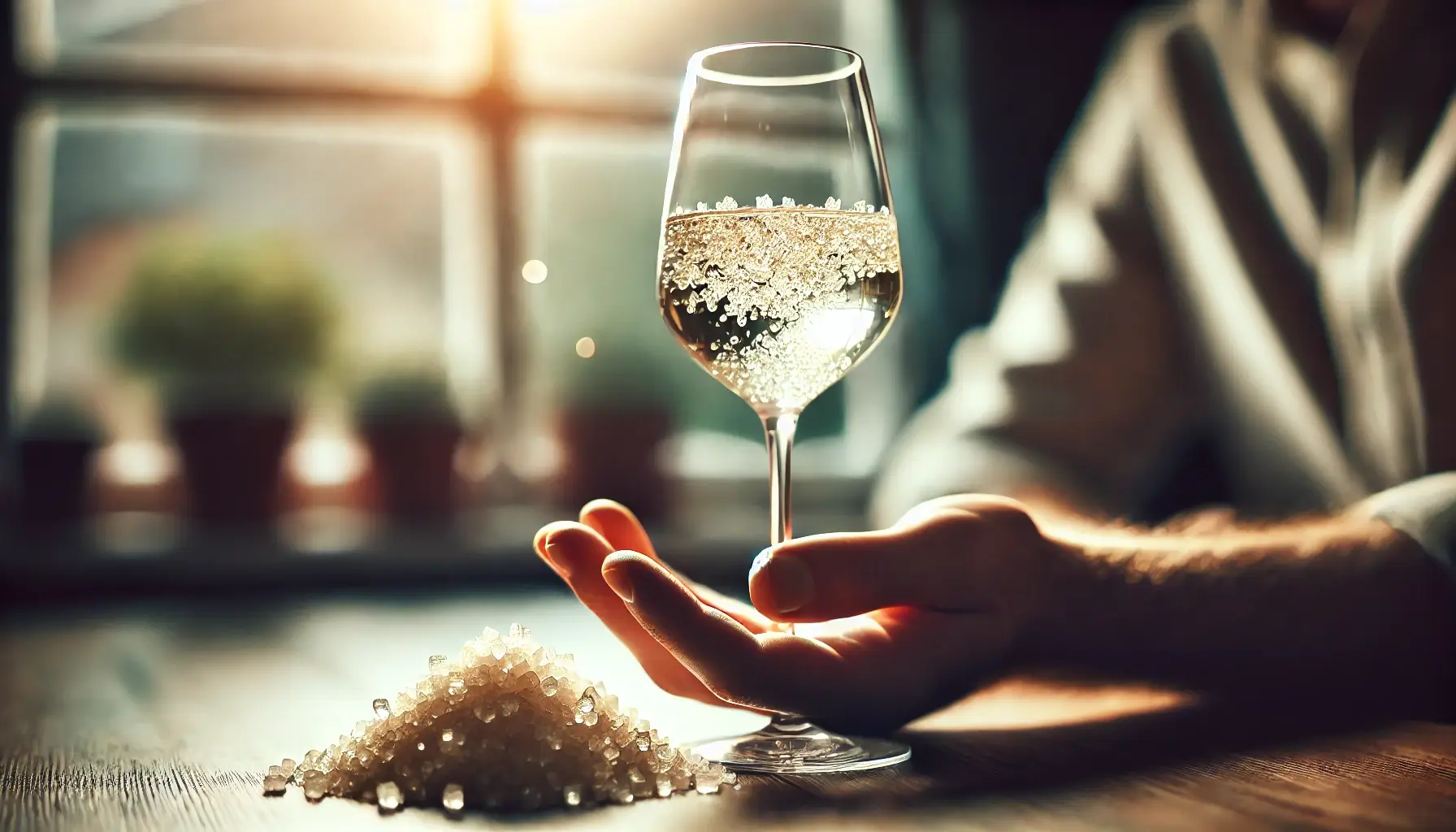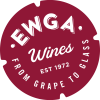Wine with Snowflakes – Understanding Tartrate Crystals in Wine
As the cold weather rolls in, it feels like the perfect time to delve into a curious phenomenon you might have encountered in your wine glass: tartrate crystals. These tiny, glistening crystals sometimes found at the bottom of your wine bottle or glass might remind you of snowflakes, but they’re not something to be concerned about. In fact, these “wine diamonds” are a natural and harmless byproduct of winemaking.
What Are Tartrate Crystals?
Tartrate crystals are composed primarily of potassium bitartrate, which originates from tartaric acid—one of the key acids found in grapes. Tartaric acid plays a crucial role in maintaining the wine’s pH balance and contributes to its overall flavor and structure. However, under certain conditions, particularly when the wine is exposed to cold temperatures, this acid can bind with potassium, leading to the formation of these crystals.
You might notice these crystals more frequently in white wines, especially those that have been stored in cold environments, such as a fridge. When wine is chilled below 40°F (about 4°C), the tartaric acid is less soluble and may precipitate out of the liquid, forming visible crystals. This is not a sign of a flawed or poor-quality wine; on the contrary, many wine enthusiasts view it as a sign that the wine hasn’t been over-processed.
The Cold Stabilization Process
To prevent the formation of tartrate crystals, many commercial wineries undergo a process known as cold stabilization. This involves chilling the wine to near-freezing temperatures for several days or weeks, causing the crystals to form and settle out before the wine is bottled. The wine is then filtered to remove these crystals, ensuring a clear and sediment-free appearance in the final product.
However, cold stabilization is a double-edged sword. While it enhances the wine’s visual appeal by preventing crystal formation, it can also strip the wine of some of its natural acidity and flavor complexity. This process can potentially impact the wine’s ability to age well and may result in a less vibrant taste profile.
Natural vs. Stabilized Wines
Some winemakers choose to skip cold stabilization altogether to preserve the wine’s natural character. These winemakers argue that the presence of tartrate crystals is a mark of quality, indicating that the wine has been minimally processed. This approach is more common among producers who prioritize the wine’s flavor and authenticity over cosmetic perfection.
When you encounter tartrate crystals in your wine, it’s a good indication that the wine hasn’t been subjected to extensive processing. While they might be mistaken for glass shards or sediment by the uninitiated, they are entirely harmless and don’t affect the wine’s taste. If you find them unappealing, you can simply decant the wine before serving or use a fine strainer to remove the crystals.
Impress Your Friends
Next time you spot these crystalline structures in your glass, resist the urge to send the wine back. Instead, take a moment to appreciate the natural processes at play and share your newfound knowledge with your companions. Not only will you be enjoying a wine that’s closer to its natural state, but you’ll also have a great conversation starter on your hands.
In conclusion, tartrate crystals are nothing to fear and may even enhance your wine-drinking experience by signaling a more authentic, less processed product. So, as the temperature drops, embrace these “wine diamonds” and enjoy your glass of wine with a bit of extra sparkle.



